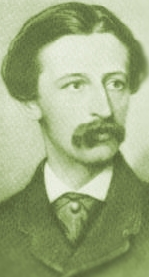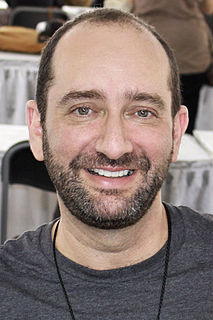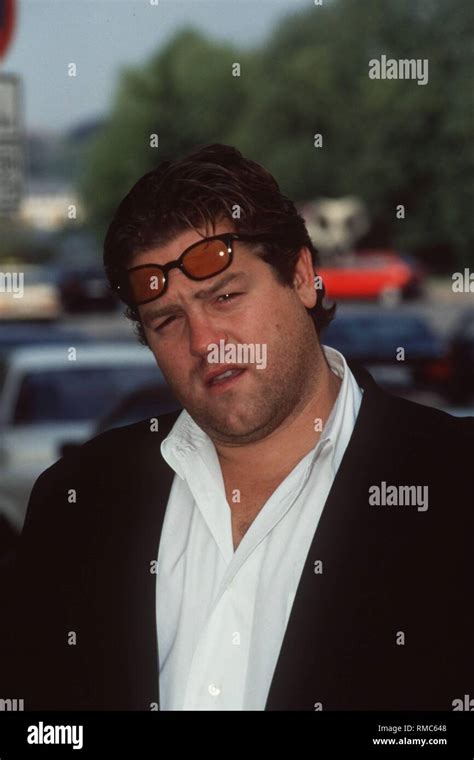A Quote by James E. Faust
Some parents have difficulty expressing their love physically or vocally. I do not ever recall my own father using the words, "Son, I love you," but he showed it in a thousand ways which were more eloquent than words. He rarely missed a practice, a game, a race, or any activity in which his sons participated.
Related Quotes
I have discovered in my long life that there are many words and phrases which have more power than any spell of magick. The most well-known of these is, of course, I love you. But by far the most deadly is, if only. For these two words can strip a man's strength, his courage and his confidence. They become the father of regret and anguish and pain.
I love you," she whispered. Richard pulled her tight against him. His fingers traced a trail down the bumps of her spine. "I feel so frustrated that there aren't any better words than "I love you,"" he said. "It doesn't seem enough for the way I feel about you. I'm sorry there aren't any better words to tell you." "They are words enough for me." "Then, I love you, Kahlan. A thousand times, a million times, I love you. Forever.
One way to read the Book of Mormon is as a book of encounters between fathers and sons. Some of those encounters were very positive and reinforcing on the part of the father of a son. Some were occasions where a father had to tell his son or his sons that the path that they were following was incorrect before the Lord.
Undoubtedly our Heavenly Father tires of expressions of love in words only. He has made it clear through his prophets and his word that his ways are ways of commitment, and not conversation. He prefers performance over lip service. We show our true love for him in proportion to our keeping his words.
The only perfect love to be found on earth is not sexual love, which is riddled with hostility and insecurity, but the wordless commitment of families, which takes as its model mother-love. This is not to say that fathers have no place, for father-love, with its driving for self-improvement and discipline, is also essential to survival, but that uncorrected father-love, father-love as it were practiced by both parents, is a way to annihilation.
Love involves more than just feelings. It is also a way of behaving. When Sandy said, "My parents don't know how to love me," she was saying that they don't know how to behave in loving ways. If you were to ask Sandy's parents, or almost any other toxic parents, if they love their children, most of them would answer emphatically that they do. Yet, sadly, most of their children have always felt unloved. What toxic parents call "love" rarely translates into nourishing, comforting behavior.
After a time I found that I could almost listen to the silence, which had a dimension all of its own. I started to attend to its strange and beautiful texture, which of course, it was impossible to express in words. I discovered that I felt at home and alive in the silence, which compelled me to enter my interior world and around there. Without the distraction of constant conversation, the words on the page began to speak directly to my inner self. They were no long expressing ideas that were simply interesting intellectually, but were talking directly to my own yearning and perplexity.
Here is an eternal truth. Life cannot be divided into compartments in some which God is involved and in others of which he is not involved... The fact is that God does not need to be invited into certain departments of life, and kept out of others. He is everywhere, all through life and in every activity of life. He hears not only the words that are spoken in his name; he hears all words; and there cannot be any such thing as a form of words which evades bringing God into any transaction. We will regard all promises as sacred if we remember that all promises are made in the presence of God.
The Greeks were smarter than us, and they had different words for different kinds of love. There's storge, which is family love. That's not us. There's eros, which is sexual love. There's philia, which is brotherly love. And then there's the highest form. Agape.” He pronounced it “aga-pay.” “That's transcendental love, like when you place the other person above yourself.
Did any of you, parents, ever hear your child wake from sleep with some panic fear and shriek the mother's name through the darkness? Was not that a more powerful appeal than all words? And, depend upon it, that the soul which cries aloud on God, "the God and Father of our Lord Jesus Christ," though it have "no language but a cry," will never call in vain.
He should have known better because, early in his learnings under his brother Mahmoud, he had discovered that long human words (the longer the better) were easy, unmistakable, and rarely changed their meanings, but short words were slippery, unpredictable changing their meanings without any pattern. Or so he seemed to grok. Short human words were never like a short Martian word - such as grok which forever meant exactly the same thing. Short human words were like trying to lift water with a knife. And this had been a very short word.
Remember the words of Christ: "Ask, and it shall be given you; seek, and ye shall find; knock, and it shall be opened unto you." These words are literally true, not figures or fiction. They were the outflow of the heart's blood of one of the greatest sons of God who have ever come to this world of ours; words which came as the fruit of realisation, from a man who had felt and realised God himself; who had spoken with God, lived with God, a hundred times more intensely than you or I see this building.
I read with keen interest the words of a bumper sticker readily visible on the highly polished chrome bumper of a car which was weaving in and out of the traffic stream. The words were these: "Honk if you love Jesus." No one honked. Perhaps each was disturbed by the thoughtless and rude actions of the offending driver. Then, again, would honking be an appropriate manner in which to show one's love for the Son of God, the Savior of the world, the Redeemer of all mankind? Such was not the pattern provided by Jesus of Nazareth.




































